Primary Ethics, which helps students build skills in ethical decision-making in hundreds of schools, was developed in collaboration with academics in philosophy and the education sector. We are now building on that foundation with the establishment of an academic and community advisory board that will foster ongoing academic connections and cultivate opportunities for collaboration.
Our new academic advisory board brings together several respected interdisciplinary experts in philosophy, education and educational psychology, including from within the Primary Ethics staff, to share expertise, provide expert advice and guidance and collaborate in bringing our ethics curriculum to more schools in more locations. The board’s expertise will enrich our program and ensure we remain at the cutting edge of developments in education and ethical discourse.
The Primary Ethics Director of Education Jarrah Aubourg chairs the new board, which will meet twice a year. Board members have a range of expertise encompassing both philosophy and education. This new forum is a space for them to share their insights and recommendations.
The board offers many benefits for Primary Ethics, including:
- staying informed on new developments and best practice related to education, philosophy with children, classroom discussions and management
- getting feedback from experts on specific issues or proposed program adjustments
- opportunities for networking and participation in collaborative projects, grants and studies
- perspectives on short-term and long-term goals, priorities for new initiatives and strategies for organisational growth.
Board members
Jarrah Aubourg (Chair)
Jarrah holds a Masters in Educational Psychology from the University of Sydney and First Class Honours in Philosophy from the University of Wollongong. As a philosopher, educator and curriculum author committed to ethics education, Jarrah brings a deep understanding of education theory and philosophical inquiry to his work. As the Director of Education for Primary Ethics, he oversees curriculum development, teacher training programs and classroom support initiatives.

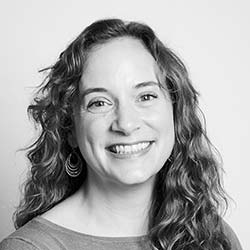
Jacqueline Ullman
Associate Professor Jacqueline Ullman is a pre-service and in-service teacher educator at Western Sydney University. Given her background across sociology of education and educational psychology, her research explores the impact of school climate, including classroom diversity, on students’ social and academic outcomes. A/P Ullman’s research is funded by the Australian Research Council and she has a substantial scholarly publication record. She serves as a member of the Research Advisory Board for the James Martin Institute of Public Policy and is the recipient of the Australian Association of Research in Education’s Raewyn Connell Award for Significant Leadership in Research.
Daniella Jasmin Forster
Dr Daniella J Forster (she/her) is a Senior Lecturer at the School of Education at University of Newcastle, Australia. Daniella is an educational ethicist with a concern for education’s role in strengthening social justice and democracy. She was a Visiting Scholar at Harvard Graduate School of Education in 2023 and previously a Primary Ethics volunteer at her children’s school. She uses philosophical tools, policy analysis and conducts empirical studies to better understand ethical decision making and practice in schooling. She is the Vice President of the Philosophy of Education Society Australasia and holds qualifications in philosophy and as a secondary school teacher.


Gilbert Burgh
Gilbert Burgh is an Honorary Associate Professor in Philosophy in the School of Historical and Philosophical Inquiry at the University of Queensland, where he has taught philosophy of education, ethics, social and political philosophy and environmental philosophy. He was the founding President of the Queensland Association of Philosophy in Schools (1994-1996) and President of the Federation of Australasian Philosophy in Schools Associations (2002-2003). He has published widely on educational philosophy, especially democratic education, civics and citizenship education and collaborative philosophical inquiry as pedagogy. He has several co-authored books, including Teaching democracy in an age of uncertainty: Place-responsive learning (2022) (with Simone Thornton).
Kimberley Pressick-Kilborn
Dr Kimberley Pressick-Kilborn is currently Director of Research (Pre-School-Year 12) at Trinity Grammar School and an Honorary Industry Fellow at the University of Technology Sydney (UTS). She has worked in primary and secondary schools in New South Wales as a teacher, school leader and education researcher for more than 25 years. Kimberley previously was a Senior Lecturer in UTS’s Teacher Education Program, with a specific focus on primary education. She has a particular interest in practitioner research and teaching innovation informed by collaborative research. Kimberley previously has taught Philosophy with children in K-6 classrooms and currently teaches Theory of Knowledge in the IB Diploma program.
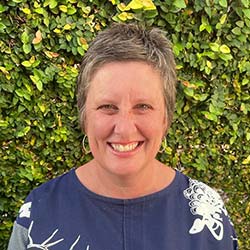
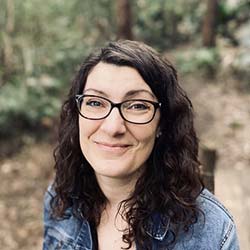
Nick Brancazio
Formerly a PERL Fellow at the University of Wollongong, Nick is an active researcher in the philosophy of science, with a focus in embodied cognitive science and interaction, and is affiliated with the Philosophy Department at the University of Adelaide. Nick was a volunteer teacher with Primary Ethics for four years and previously worked with Philosophical Horizons through the University of Memphis.
Simone Thornton
Simone Thornton is an educational and environmental philosopher and lecturer at the University of Wollongong. She is a member of the International Advisory Board for the journal Childhood & Philosophy, Brazil. Simone has numerous publications in philosophy in schools, including the co-edited history book Philosophical Inquiry with Children: The development of an inquiring society in Australia. Her most recent book, Eco-Rational Education: An Educational Response to Environmental Crisis, explores the role of philosophy in both creating and responding to the environment crisis and the implications for education.
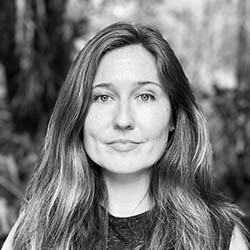
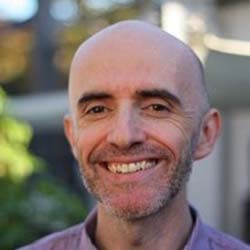
Kelby Mason
Kelby has a University Medal in philosophy and a Master of Public Health from the University of Sydney; he did his graduate work in philosophy at Rutgers, where he was a member of the Moral Psychology Research Group and a fellow at the Center for Cultural Analysis. Kelby has been a trainer for Primary Ethics since 2011 and an ethics teacher since 2012, during which time he has trained thousands of volunteer teachers and taught hundreds of students. He wrote the Primary Ethics high school curriculum and currently provides philosophical advice, trains and provides classroom support for new ethics teachers.